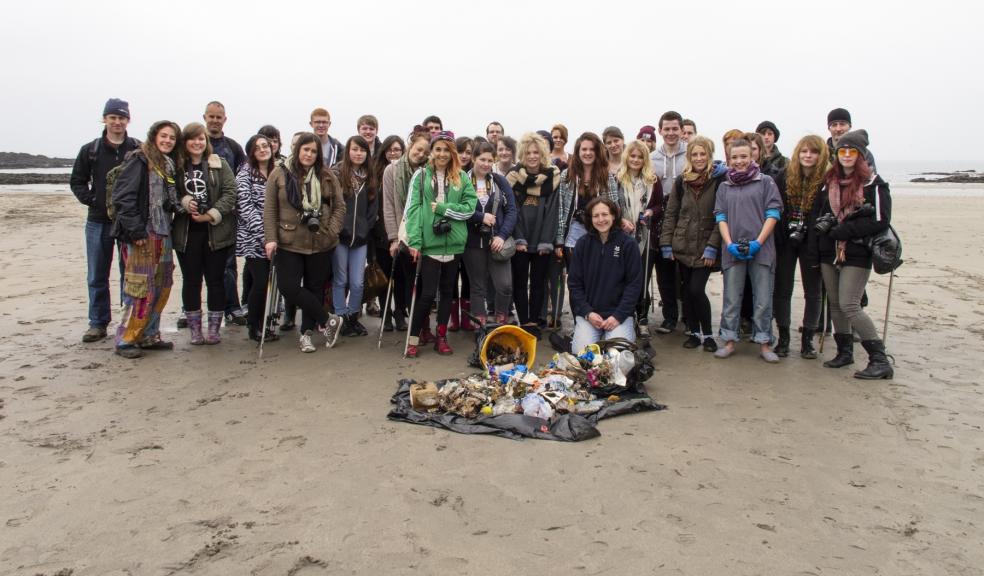
Beach litter the focus for photography students
Last week photography students from Plymouth College of Art came out to help National Trust rangers collect litter from Wembury beach.
Lorna Sherriff, Ranger for South Devon said: "At first the group looked down onto the beach and said it was all clean, but when they got down there and I showed them all the small pieces of plastic, polystyrene and fishing rope which were laying on the beach, they were amazed by the amount of litter.
"These tiny bits of plastic and polystyrene are so light they can easily be washed or blown back out to sea where they can often become part of the food chain when mistaken for food by marine organisms. These little bits of plastic can then lodge into the marine organisms digestive system causing the creature to die."
Course leaders Chris Smith and Tobie Loates commented: "We wanted to do a beach clean as part of our 'Earth Stories' environmental photography assignment this summer and we are very grateful to the South Devon National Trust team for helping us organise this. The students have been learning about marine and coastal conservation issues as part of their assignment, and they were particularly concerned about marine plastic pollution.
"One of the National Trust Rangers, Lorna Sherriff, was able to meet the students on site and explain more about marine and coastal conservation work. The students were able to make a difference in a very real way to a much loved local beach; and picking up litter gave them something topical to photograph too.
"The students will be exhibiting some of these photographs in the summer at the National Marine Aquarium in Plymouth."
In a statement, the National Trust said: "Marine litter affects wildlife as well as our enjoyment of the beach and so we are grateful for any groups who volunteer to help litter pick the beach and also visitors who follow our ethos of taking litter home.
"This is the only way our beautiful South Devon coastline can be kept for all to enjoy – whether families, surfers, kayakers and, perhaps most importantly, the wildlife of the seashore."











